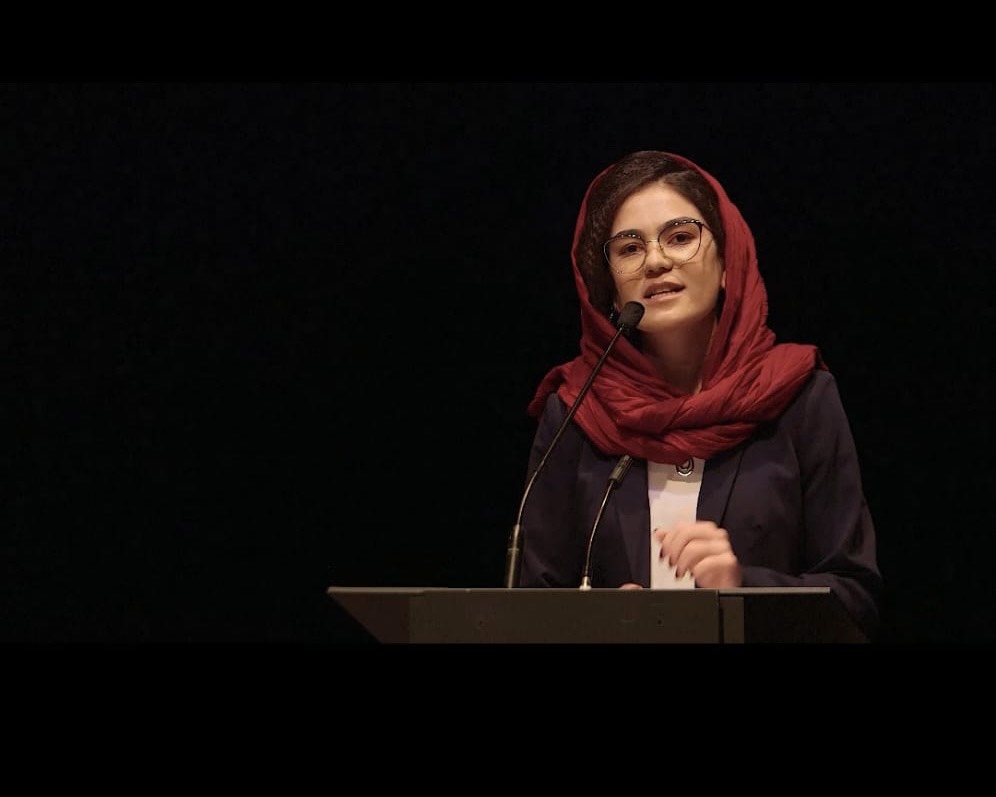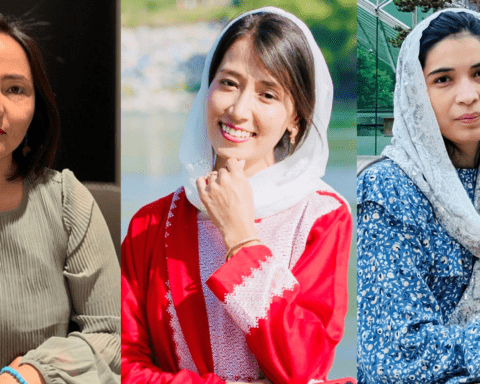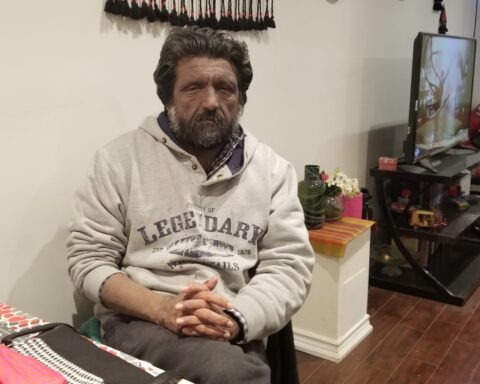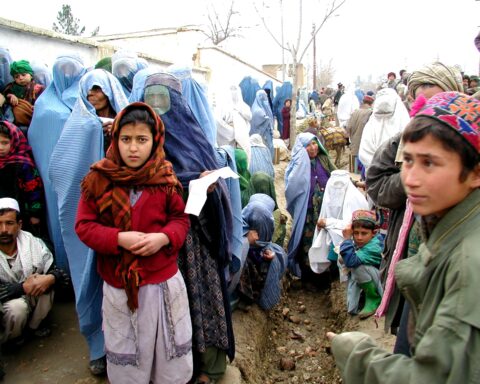Just over a year ago, Rukhshana Ahmadi was studying both English Literature at Kabul University and at the Civil Aviation Institute to become a pilot in Afghanistan. Then the Taliban took over the country and continuing her education in her motherland became out of the question.
During her education Ahmadi, 23, from Hazara, had worked for the Canadian government as an interpreter in Afghanistan several times.
After the Taliban took over the Afghan capital, on August 15, 2021, Canada and other countries prioritized evacuating foreign citizens and Afghans who had helped western countries by Aug. 31, 2021. So Ahmadi applied to come to Canada as a refugee under humanitarian grounds.
Now Ahmadi is working part-time at a fruit market in Mississauga, Ontario but she wants to be a journalist and has been accepted into the journalism program at the Toronto Metropolitan University. She is taking ESL classes to improve her English, and has also recently started an online interpreters’ course.
Leaving Afghanistan was not easy. Nor is being in Canada without her family.
Ahmadi prepared her application to come to Canada under the Taliban threats.
“I finally completed the application I submitted before I realized I had not included the information about my family,” Ahmadi said.
The next day she received an email from the Canadian Government with a call to go to the airport, but she responded that she could not leave without her family.
“The person who replied to my email told me to go to the airport and take my family, and we would straighten it out at the airport,” she said.
An American soldier came to escort her family but on the way inside the terminal she was pushed to the ground by the crowd of people, and was separated from her family.
As she tried to find her family during that turmoil, a suicide bomb exploded at the Kabul Airport. Ahmadi was wounded by the explosion, with the bomb blast temporarily damaging her eardrums causing hearing loss.
“I was knocked unconscious,” Ahmadi said. “When I became conscious I could not see my family anywhere.”
Ahmadi said that foreign soldiers tried to help her find her family at the airport. One of the soldiers suggested that her family could be on an earlier plane to Kuwait.
Trusting that information, she flew to Kuwait hoping to reunite with her family. When she landed in the country, she came across the worst disappointment in her life.
“When I got there, I learned my family had not made it out and was still in Afghanistan,” she said. “I was devastated, but my only option was to continue to Canada,” she said. “I arrived in Canada, all alone.”
When the Taliban seized power in Afghanistan on, it had promised the country nothing would change.
But Taliban authorities forced heavy restrictions on women’s and girls’ rights, silenced the media, and arbitrarily detained, and tortured people who did not obey them, according to Human Rights Watch reports. Afghan girls and women who had been improving their situations for years lost everything that they had gained in the past 20 years.

“Taliban have banned women from working in most occupations.,” said Heather Barr, the associate director at the Women’s Rights Division at Human Rights Watch who has worked on Afghanistan since 2007. “They’re only allowing women to work in occupations that they think that they think can’t be performed by men, such as teaching girls and providing health care to women.”
“Those are the two main fields where women are still allowed to work, and most professions are banned,” Barr said.
Afghanistan’s Taliban rulers ordered all women to cover their faces in public on May 7, 2022 and they are not to leave the house unless it is necessary.
“Women and girls are feeling that anytime they leave their home, no matter what they are wearing, they might face harassment from the Taliban,” Barr said.
She added that the Taliban will not punish the women themselves. Instead the women will be punished by their mahram, a male family member who is responsible for them.
“Women are not feeling safe in Afghanistan, obviously,” Barr said.

So, the only way for women to be safe is to leave the country like Ahmadi did.
Ahmadi lost all her possessions in the bomb attack, including her computer and cellphone.
“Many of us [refugees] had no shoes as they were damaged by the dirty sewage water that surrounded the Kabul Airport,” Ahmadi said.
However, the greatest loss for her was being separated from her family.
“Can you imagine being a young, Muslim woman and suddenly being all alone in another country?” she asked.
She is working to get her younger sister, her widowed mother and aunt, as well as her two younger brothers to Canada.
“I must admit I am disheartened by the minimal number of Afghans who have entered Canada since last August,” Ahmadi said. “It is very difficult to find an organization that has space in their yearly quota to bring my family to Canada, but I continue to try.
According to the Government of Canada, as of August 11, 2022, 17,350 Afghans have arrived in Canada since August 2021, 7,300 of whom arrived under the special immigration program for those who had assisted the government.
Nur Dogan is a Turkish journalist who lives in Toronto. She studied journalism at Humber College. Her stories and photographs were published not only in Canada but also in the U.S. and Europe. As a digital media reporter, she has covered national and international news for some magazines, newspapers and online news platforms. Focusing on human rights for all, Nur observes and reports on human rights violations, oppressions and illegitimate political attempts against visible minorities.






Rukshana Ahmedi is my classmate. She is very nice and helpful girl. Her story literally made me cry😭 More power to brave Rukhshana Ahmedi and other Afghan laidies❤️